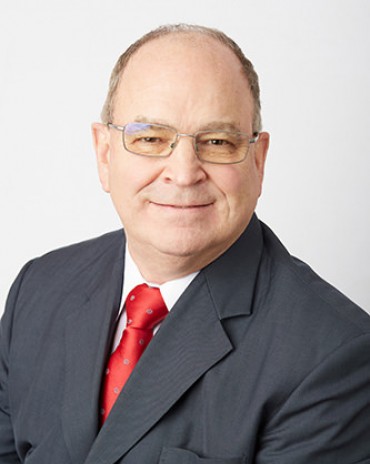Pete Poppert

Assistant Professor of Practice
Phone Number: 402.467.9004Department: Agribusiness
Office: FBC203-3
Email: [email protected]
Primary Campus: Lincoln
Credentials: BS, MS, JD
Pete Poppert is Assistant Professor of Practice in the College of Business. He serves as the Chair of the Agribusiness Department and holds the A.R. Kinney Endowed Chair. Pete joined Doane University in 2010 and primarily teaches classes for the Agribusiness programs. He earned a J.D. (1994) and his M.A. in Animal Science (1988) from the University of Nebraska-Lincoln. Pete brings decades of industry experience to his classes. He has held the titles of: Client Service Partner, Director of Sales Training and Development, Area Sales Manager, and Director of Science and Technology. He is also a member of the Nebraska Bar Association. Pete’s main research area is looking at the student experience of community in an online class. Pete is the recipient of the Doane University Annual Impact Aware and the College of Business Vision Award.
Education
J.D., University of Nebraska-Lincoln, 1994
M.S. (Animal Science), University of Nebraska-Lincoln, 1988
B.S., (Agriculture Honors), University of Nebraska-Lincoln, 1982
Courses
- Introduction to Agribusiness (AGR 100)
- Applied Agricultural Technology and Data Analysis (AGR 215)
- Applied Agribusiness Management (AGR 230)
- Agriculture Law & Policy (AGR 310)
- Advanced Agribusiness Management (AGR 430)
Professional Experience
Chair of the Agribusiness Department, Doane University, 2019-Present
Client Service Partner, Fiserv, 2008-2020
Corporate Educator, National Research Corporation, 2004-2008
Co-Owner/Consultant, Cattlemen's Consulting, 1993-2003
Director, Nebraska Cattlemen's Association, 1988-1990
Teaching Experience
Doane University, 2010-present
University of Nebraska-Lincoln, 1987-1988, 2006-2007
Professional Accolades
Impact Award- For living the mission and values that have significant impact on people, the environment, and life, Doane University, 2019
- Training Solutions, Train the Trainer Certification, 2007
- Outstanding Leadership Award - For exceptional leadership in pursuing the Harvey Picker's ideals to improve patient-centered care, NRC Picker, 2006
Professional Highlights
- Conference on Higher Education Pedagogy, Virginia Tech University, 2018
- Scott, T., Milton, T., Dicke, B., Poppert, P., & Hollis, L. (2000). The effect of V-Max on performance and carcass characteristics of finishing cattle fed corn and corn by-product finishing diets. Nebraska Beef Cattle Reports, 391.
- Mader, T. L., Poppert, G. L., & Stock, R. A. (1993). Evaluation of alfalfa type as a roughage source in feedlot adaptation and finishing diets containing different corn types. Animal Feed Science and Technology, 42(1-2), 109-119.
- Mader, T. L., Poppert, G. L., & Stock, R. A. (1993). Effect of alfalfa and corn moisture level on whole corn mastication. Animal Feed Science and Technology, 42(3-4), 309-318.
- Current Member of Nebraska Bar Association
- Current Member of the North American Colleges and Teachers of Agriculture
- Facilitated Strategic Planning sessions for non-profit organizations.
- Led group discussions on leadership development.
- Actively involved in many organizations over the course of his career, including:
- Past-President - South Central Corn Growers Association
- Past-President - Nebraska Agribusiness Club
- Past Member - Board of Directors of the Holdrege Area Chamber of Commerce
- Past Member - Board of Directors of the Sheridan Lutheran Church Foundation
How did you become interested in teaching?
I became an instructor as a way to help people learn and succeed in the corporate world. I found my passion and pursued a more permanent opportunity as a professor to help students learn and grow.
What advice do you have for students?
Employers are looking for individuals who are good communicators, think critically, demonstrate a drive to succeed, among other things. Make every part of your education include activities that can help develop these important skills. Never back away from a challenge. One of the best ways for students to succeed is by engaging with their instructors. My door is always open, so reach out and visit me whenever you would like. If you can't meet with me in person, please feel free to contact me via phone, email, or text.
What is your teaching style?
My course content matches the ever-changing needs of the business world. Students and employers rely on my skills and understanding of current business practices. I continue to ask if the course curriculum is still applicable not only in today's business world, but also into the future. I am also interested in leveraging the strong partnership with business communities to help my students be successful in their career. I am incorporating new techniques, such as simulations, special projects and guest speakers, into my course curriculum as a way of demonstrating to students the relationship of the course concepts with real-world experiences.
